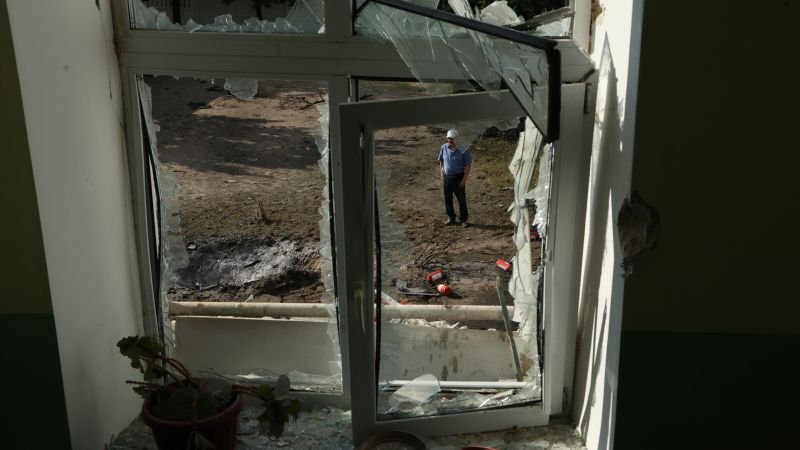If his latest remarks are anything to go by, US President Donald Trump’s loss of patience with the Kremlin appears to be gathering pace.
Speaking from his golf resort in Turnberry, Scotland, alongside British Prime Minister Keir Starmer, Trump unexpectedly shortened his own 50-day deadline on Moscow, imposed two weeks ago, to agree a peace deal with Ukraine or face tough new economic sanctions.
“Yeah, I’m going to make a new deadline of about 10 or 12 days from today,” Trump told reporters on Monday.
“There’s no reason in waiting. I want to be generous but we just don’t see any progress being made,” the president added.
It’s not clear why, in that case, Trump has decided to wait for yet another 10 to 12 days before carrying out his threat to impose high tariffs on Russia and tough secondary sanctions on nations that buy Russian oil.
But it is the latest sign that Trump’s notoriously flip-flopping rhetoric on the Ukraine war, which has for months lurched between squarely blaming Kyiv and Moscow for the continuing bloodshed, now seems to have taken on a more consistent tone that is generally critical of the Kremlin and the conduct of its strongman leader, Vladimir Putin.
“We thought we had that settled numerous times, and then President Putin goes out and starts launching rockets into some city like Kyiv and kills a lot of people in a nursing home or whatever,” Trump said earlier Monday.
Trump also renewed his threat of tariffs and sanctions, pondering whether the Kremlin would capitulate.
“You would think based on common sense, you would think you’d want to make a deal. I guess we’ll find out,” Trump said.
But after years of stubborn refusal to compromise, the suspense is killing no one.
The Kremlin has consistently ruled out ending the war in Ukraine until it has achieved its maximalist objectives. These include gaining control over vast swathes of annexed Ukrainian territory not yet conquered and imposing strict military and foreign policy limits on a post-war Ukraine that would essentially subjugate Kyiv to Moscow’s will.
It is unlikely any threat of more sanctions on Russia, already one of the most sanctioned countries in the world, would deflect a Kremlin that seems hell bent on achieving its aims at any cost.
Simply bringing that threat forward by a couple of weeks, as Trump has now done, is likely to have little impact on the Kremlin’s hard-headed calculations, especially given that the sanctions threatened by Trump are widely viewed in Russia as being toothless or impossible to implement.
Trump’s threatened tariffs of 100 percent on Russian exports, for example, are seen as virtually meaningless in a country that does just a few billion dollars’ worth of trade with the United States annually.
Potentially more significant is Trump’s threat to impose punishing tariffs or secondary sanctions on countries that buy Russian oil. But the biggest importers of that commodity are, of course, India and China. Turkey is also a major customer, as are a number of European states. There are serious doubts in Moscow that even Trump would plunge the United States into a global trade war over the issue of Ukraine.
And even in the unlikely event of the Chinese, the Indians and the Turks all agreeing to play along and to stop buying Russian oil, the shock to the markets of losing Russian supplies would be profound. It would likely cause crude prices to rocket, stoking global inflation and even gas prices at the pumps in the US.
Even before the US president’s latest remarks, Kremlin insiders were publicly scoffing at Trump’s ultimatums.
“Fifty days! It used to be 24 hours; it used to be 100 days. We’ve been through all of this,” sneered Russia’s veteran foreign minister, Sergey Lavrov, earlier this month.
Now, the latest 10 to 12-day window has provoked even stronger rebuttals.
“Russia’s actual response to Trump’s ultimatum will be the same as it has been for the last 500 years to all ultimatums,” Sergey Markov, a prominent Russian political analyst, wrote on Telegram.
“Go away! Go to hell,” he added.


